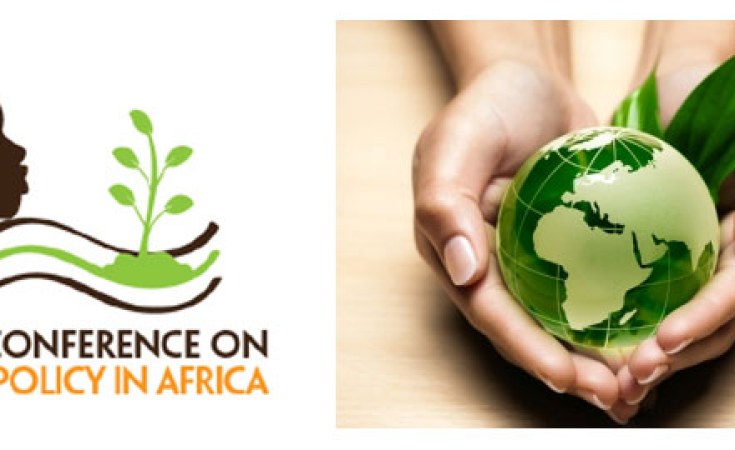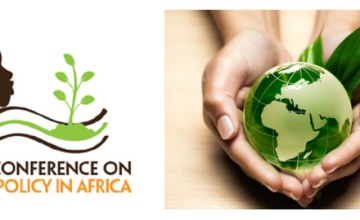Addis Ababa — The inaugural conference on land policy in Africa opened Tuesday evening at the African Union Headquarters in Ethiopia with a strong call for a robust deepening of land governance on the continent and an appeal for promoting policy and regulatory environments that advance large scale agricultural production and productivity. Organized around the theme: "The next decade of land policy in Africa: Ensuring agricultural development and inclusive growth" the 11-14 November conference is in line with the 2014 African Union year of Agriculture and food security.
African Union Commissioner for Rural Economy and Agriculture, Rhoda Tumusiime, emphasized that Agriculture is still a key driver of Africa's economic transformation, with the prime responsibility of providing employment opportunities for a rapidly growing and predominantly youth population, sustainable livelihoods and poverty reduction.
'We are proud that Africa is the only continent that has defined its own agenda for land policy. This conference is timely and allows us to track progress in the implementation of the AU declaration on land,' she said.
Ethiopian Minister of Agriculture, Mr. Tefera Debrew challenged governments on the situation of low productivity and food security in the midst of substantial land resources, stating, 'it is not acceptable'. He called on AU member states to 'diligently implement the African Union-led continental frameworks and guiding principles as they could reverse the situation if implemented.
In his remarks, Stephen Karingi, Director of the Regional Integration and Trade Division at the Economic Commission for Africa (ECA) stressed the need to improve the governance of land resources on the continent. "Property rights need to be clarified, land rights of African people, including rights of women and pastoral communities need to be secured and Africa needs to enhance its land use planning and sustainable land management," he said.
Karingi called on African governments and other institutions on the continent to promote effective and efficient land administration systems based on good governance of land resources. He cited examples from other parts of the world, where land development has allowed countries to have more productive agriculture and ensure food security and even food export.
Kafui Afiwa Kuwonu of Women in Law and Development in Africa (WILDAf) spelt out how civil society organisations intend to use the platform provided by this conference: to share experiences and to challenge policymakers, but also to inspire participants to forge ahead with implementation and to be part of the solution: 'we commit to disseminate information on land policy and collaborate in efforts and to share best practices', she promised.
Josephine Ngure, Resident Representative of the African Development Bank to Ethiopia reiterated that land policy development and accompanying policy frameworks are critical for Africa's transformation.
"Land in Africa is not simply an economic and environmental asset but also a social, cultural, spiritual resource and a social identity." She noted that land problems must be addressed, if sustainable development in Africa is to be realized.
For her part, Aisa Kirabo Kacyira, Deputy Executive Secretary of UN-Habitat declared, 'Leadership is needed where the common good is in conflict with the private good - and land is such an area that calls for leadership.' She said that the engagements at this conference, between policy makers, practitioners, civil society and academics, are crucial for strengthening such leadership.
Ambassador Gary Quince, head of European Union Delegation to Ethiopia and to the African Union, emphasized the partnership and collaboration that has been forged between the EU and AU, with the EU now supporting land tenure programmes currently in ten countries. Quince pointed out that, since the AU Declaration was adopted five years ago, Africa has enjoyed good economic growth, and the importance of agriculture has been recognized. She however stressed the need to look at the challenges that are emerging, such as the upsurge of conflict across Africa and the related displacement of many thousands of people from their land and livelihoods.
The conference is organized by the Land Policy initiative, a tripartite consortium comprising the United Nations Economic Commission for Africa, the African Union Commission, and the Africa Development Bank.
Note for editors
About 60 percent of the population on the continent derive their livelihood and income from farming, livestock production, fisheries and aquaculture, agro-forestry and other agricultural related activities. Looking ahead, if Africa is to meet the challenge of feeding an additional 1.6 billion people by 2050, an integrated approach to addressing land problems, as well as other challenges that have negative impacts in the agricultural sector is essential.
The Guiding Principles on Large Scale Land Based Investment, endorsed by Heads of State in April 2014, are to be officially launched on the second day of the conference, on the morning of Wednesday 12 November 2014.



